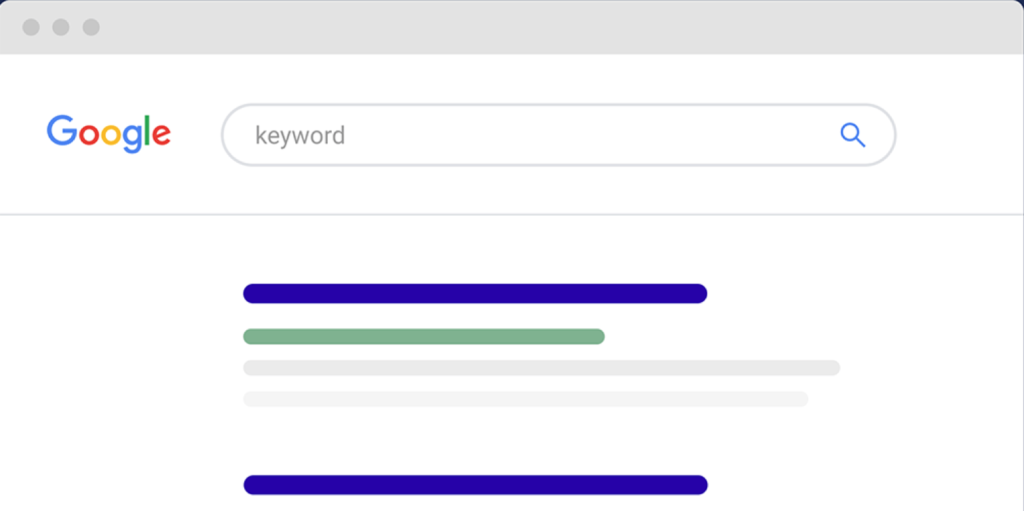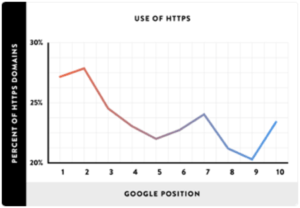Contents
What is an SSL Certificate?
SSL “Secure Sockets Layer” Protects the visitor’s data passed between him and a website. With Creating some extra layer of safety.
Also, SSL Certificate, ensure that this data it won’t be leaked outside, remain private and it’s protected with an encrypted connection.
If you are interested, to learn about how the SSL Works, you can read this guide to SSL and website security “seositecheckup.
Why SSL Certification is important for SEO?
There are three main reasons why SSL certification is vital to rank your website in search engine page (SERP):
- First: Because it’s a ranking factor in Google’s algorithm, (about 80% of searching in the world, done on Google’s search engine “including: YouTube, Google, Google image …”).
- Second: It has a huge impact on the time visitors spend on your site.
- Third: it could be the reason to outrank your competition in Search Engine Result Pages (SERPS).
How the SSL certificate influence search engine rankings?
1 – Google Criteria :
This is a good reason to go ahead and make sure that SSL Certificate is set up and running.
Google has actually said, it loud and clear that SSL Certification. Is a ranking factor “We’d like to announce that we’re adjusting our indexing system to look for more HTTPS pages.
Specifically, we’ll start crawling HTTPS equivalents of HTTP pages, even when the former are not linked to from any page”.
Google, make this announcement to encourage all websites, master to switch from HTTP to HTTPS to make sure the visitors are safe on the web.
According to Backlinko that the SSL Certification quickly becomes normal in the present.
2 – It has a huge impact on the time visitors spend on your site :

“Not Secure” in the address bar, this warning for the visitors may cause them to leave the site, and that sends a message to Google that this site, is not secure.
And it causes the quickly leaving of visitors, and that affects the ranking of your pages on SERP. There is a ranking correlation between longer time on site and lower bounce rates.
it could be the reason to outrank your competition in Search Engine Result Pages (SERPS).

With the great amount of the number of SEO factors, it is still unknown the exact impact of an SSL certificate on the ranking of a website.
Backlinko’s Brian Dean, teamed up with SimilarWeb, MarketMuse, Ahrefs, and SEMRush to gather the necessary data and concluded that there really is a relation between a web site, with HTTPS and the Google position. HTTPS being “moderately” connected to the first-page listing on Google.

It should be, taking in account that having an SSL certificate, will quickly boost your website to the top of the SERPs (search engine results pages).
You should think about all the other SEO factors as well as SSL, and set up correctly. if you’re taking care of all the factors, then having an SSL certificate will certainly help your rankings though.
It stands to reason then, that you definitely shouldn’t ignore an SSL certificate!
Google goes even further and displays a security warning on sites running on “HTTP” and asking for personal information.
Improvements to user experience
We must say that having an SSL certificate on your website will definitely improve the user experience. As well as the security given for them.
An eCommerce website, which sells products online, and as known they collecting sensitive data from the visitors such as email information, credit card information, etc…, the chances of someone capture this information is very high when on an unsecured website. And this can cause a drop in sales and a loss of income. It should come logically then, that having an SSL certificate is absolutely important to running an eCommerce website.
Google’s algorithm has learned over the past few years that websites running without SSL certificate, they don’t provide a good user experience, which means that google will downgrade your website in the SERPs.
And People leaving, the website after seeing the warning message would show to Google that this website is not worthy of being ranked high for that keyword.
More Resources:




